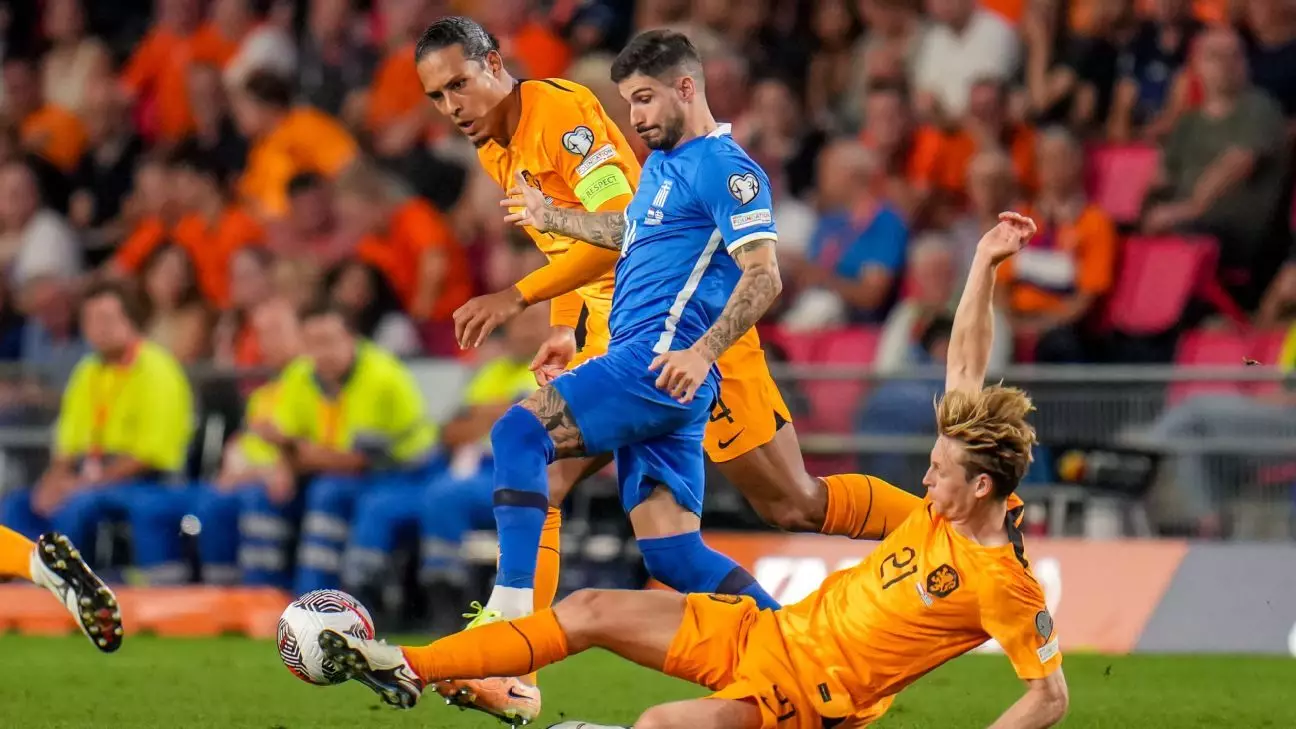In the realm of international football, maintaining player health and performance is crucial. Recently, Netherlands head coach Ronald Koeman announced the withdrawal of prominent players, Virgil van Dijk and Frenkie de Jong, from the upcoming UEFA Nations League match against Bosnia and Herzegovina. This decision has raised eyebrows, yet it highlights the importance of prioritizing player well-being over mere participation in international fixtures.
Both Van Dijk and de Jong have returned to their respective clubs, a move that Koeman deemed essential for the players’ welfare. The coach, in his statement, emphasized that this resolution was based on medical grounds, putting the health of his key players above all else. Such a stance is notably prudent, especially given the grueling nature of modern football. With the fixture congestion that teams face, ensuring that players are in peak condition for their club commitments is vital.
ESPN reported that Van Dijk’s exit from the international squad is a precautionary measure, viewed as a sensible decision rather than a reaction to an immediate injury. The Netherlands had convincingly secured their place in the Nations League quarterfinals following a dominant 4-0 victory against Hungary. This creates a golden opportunity for Koeman to rest vital players without jeopardizing the team’s competitive edge.
For Frenkie de Jong, his recent appearance in the national team was a long-awaited comeback after a debilitating ankle injury had sidelined him for significant time, including missing the European Championship last year. While his return received a warm reception from fans and pundits alike, de Jong himself expressed that he needs more time to regain his form fully. It raises a pertinent question about the balance between individual player development and team requirements. Recognizing when to step back is crucial for athletes who have struggled with injuries, as rushing through recovery could lead to more severe setbacks down the line.
Implications for Club Football
As both players head back to their clubs, Liverpool and Barcelona will undoubtedly welcome their stars with open arms. The impact of their presence at club level cannot be overstated. Van Dijk’s commanding performances have helped Liverpool establish itself as a frontrunner not just in the Premier League but also in the Champions League. Meanwhile, de Jong’s pivotal role at Barcelona remains crucial as the team looks to reclaim its previous glory.
Looking ahead, Liverpool’s upcoming matches include a critical encounter with Southampton, followed by high-stakes fixtures against Real Madrid and Manchester City. The team’s prospects will heavily depend on the fitness and form of their star players, underscoring why managing player health during international breaks is vital.
The withdrawals of Virgil van Dijk and Frenkie de Jong from the Netherlands squad were strategic and justified decisions by Koeman. Prioritizing player health not only benefits the athletes but ultimately serves their clubs better in the long run. As international matches continue to intertwine with club commitments, finding a healthy balance will remain a challenge for coaches, players, and fans alike.

Leave a Reply